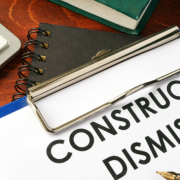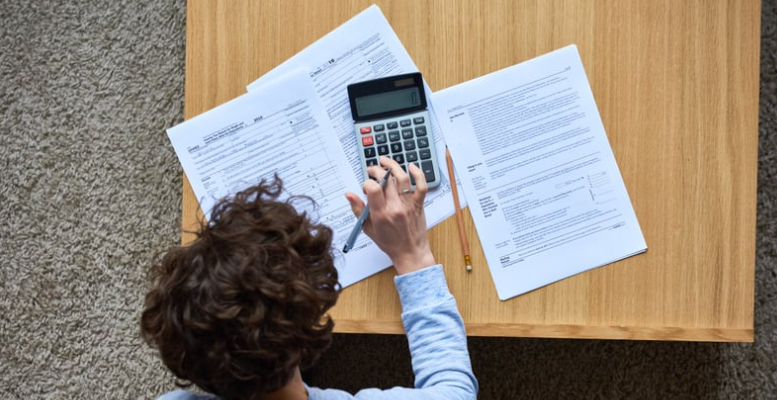
Do You Declare Universal Credit on Self Assessment Tax Return?
If you’re self-employed, chances are you’re doing business alone. You’ll need to keep receipts for every expense incurred and credit them accordingly in your tax return. If you’re self-employed, you’ll also need to pay tax on your income. This blog will cover the reporting requirements for self-employed individuals and how they work out self-employed earnings. It will also touch upon how universal credit and tax play a part in this equation.
Reporting your income and expenses
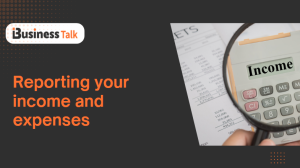
- Self-employed people must register for self-assessment and make their income tax returns.
- Unincorporated businesses must register for self-assessment to make their income tax return and self-assess their tax liabilities for the previous year.
- Self-employed earnings must be reported on a simple cash-in, cash-out basis to receive universal credit payment. This means that earnings from the business must be entered into universal credit monthly and paid out of business each assessment period.
- Self-employed People should keep records of payments received and paid out of business each assessment period. This should include the total amount received, expenses, tax and national insurance paid, and pension contributions.
- People can make income tax returns using the Revenue Online Service (ROS) or by filling out a paper form 11. It is important for self-employed individuals to keep accurate income tax records and accounts for the year.
How and when to report your income and expenses?
As a self-employed person, you must report your monthly income and expenses to receive your Universal Credit. If you report your income and expenses late, your payment may be delayed or suspended. Furthermore, it’s essential to be aware of the self assessment deadline for filing your tax return, as missing this deadline can result in penalties and fines.
If you are self-employed and eligible for Universal Credit, you can claim it to cover some of the costs of running your business and paying your bills. Contact your local tax agent or accountant to learn how to claim universal credit and other tax-favoured programs for self-employed individuals.
What to report?
Self-employed individuals may qualify for Universal credit payments. These payments are not taxable and need not be reported on self-assessment tax returns. However, self-employed individuals must report their earnings from self-employment every month to receive their universal credit payment. So if you’re self-employed and receiving universal credit, keep track of your income and expenses to avoid delays or issues with payment.
How your self-employed earnings are worked out?
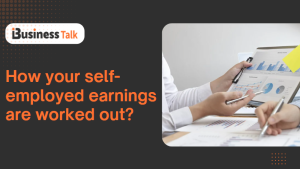
If you are self-employed and claim Universal credit, your payment may be calculated using an assumed level of earnings called the Minimum Income Floor.
This is the minimum amount of income needed to provide a reasonable standard of living. It’s based on what a person on minimum wage would expect to earn in similar circumstances.
The Minimum Income Floor is updated annually and indicates how much income self-employed individuals need to earn to receive full credit. If you earn more than this amount, your universal credit payment will be calculated using your actual earnings.
If you earn less than the Minimum Income Floor, universal credit won’t make up the difference, and you may need to look for additional work to top up your income.
Surplus earnings and losses
If you are self-employed, it is important to understand how your self-employment income is calculated and what tax reliefs may be available. For example, surplus earnings, or the difference between income from self-employment and allowable business rates, are a key component of self-employment income and must be included in calculating your income tax and national insurance contributions.
Staff and employee costs are eligible for tax relief to ensure that profits earned through non-worker inputs, such as depreciation and inventories, are not taxed. Common allowable expenses for self-employed individuals include salaries, bonuses, pensions, benefits, staff costs, agency fees, and subcontractors. These costs can reduce self-employment tax liability and allow you to keep more earnings.
Universal Credit and Tax
Self-employed individuals may claim Universal Credit if they meet the benefit requirements. For instance, self-employed individuals can claim Universal Credit if they earn above the ‘Minimum Income Floor’, which is usually the amount someone of your age would earn if they worked at the National Minimum Wage. In addition, if you’re already claiming certain benefits, such as Tax Credits or Housing Benefits, you’ll eventually be moved onto Universal Credit.
In addition to Universal Credit, self-employed individuals may also find tracking their earnings and expenses useful to ensure they cover all of their basic living costs and income. This will help ensure their Universal Credit payment accurately reflects their earnings. If you’re self-employed and claiming universal credit for the first time, keeping track of your income and expenses is always a good idea to stay on top of your finances.
Do You Declare Universal Credit on Self Assessment Tax Return?
On your Self Assessment tax return, if you got a self-employed income support grant, you must report this. To continue to receive Universal Credit, you must report your earnings to the DWP every month.
If you are self-employed and claim universal credit, all of your income from salaries, bonuses, pensions, benefits etc., should be added to determine how much tax you pay. This includes the amount for staff costs (if any), agency fees and subcontractors (where applicable).
Conclusion
For self-employed individuals, universal credit offers several benefits, such as tax-receipting potential and financial support while awaiting earnings to increase. Therefore, it is important to first enrol in universal credit and report income and expenses on the last day of each assessment period to maintain records for tax purposes.
FAQ – Do You Declare Universal Credit on Self Assessment Tax Return?
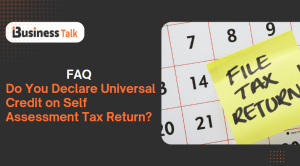
Does Universal Credit count as taxable income?
Universal Credit is not considered taxable income, so it must not be recorded on a Self Assessment tax return. This means that self-employed people can claim Universal Credit as their income.
Similarly, some self-employed individuals may require moving from certain benefits such as Tax Credits or Housing Benefits to Universal Credit. However, self-employed individuals must understand the implications of moving to Universal Credit to ensure they are prepared for any changes.
What expenses can I include in my self assessment tax return?
Self-employment can come with several tax expenses to consider when filing your income tax return. These allowable expenses can include travel costs, office expenses, professional fees, and advertising costs. All expenses must be reported on the Form 11 income tax return and can be calculated using either the Revenue Online Service (ROS) or your self-assessment.
Keeping records of all expenses claimed is essential to ensure they are allowable. Claims for allowable expenses for self-employed individuals may differ from those of limited companies. Therefore, it is always important to consult with an accountant or tax advisor to get the most accurate information for your tax return.
How does Universal Credit affect my tax return?
If you are receiving Universal Credit, it is not taxable and should not be included in your self-assessment tax return. However, if you are self-employed and claiming other benefits such as Tax Credits or Housing Benefits, you’ll eventually be migrated onto Universal Credit instead of those benefits. Therefore, before claiming Universal Credit, you should understand the impact on your tax return. Help is available if you have questions about how Universal Credit affects your tax return.
Do you have to return Universal Credit?
Unfortunately, you may have to return Universal Credit if you are self-employed.
Universal Credit is a benefit that was first introduced in the UK in 2013 and is now being rolled out across the country. Universal Credit replaces other benefits like pension credit, jobseeker’s allowance, and income-related housing benefits.
If you are self-employed and already claiming benefits such as Tax Credits or Housing Benefits, you will be moved onto Universal Credit. Your benefits will be paid directly to your account rather than to your bank or employer.
You should add your Universal Credit payments to your income when calculating your profits for a Self Assessment tax return. This will help to ensure that you are paying the correct amount of tax on your earnings.
What can I claim on my tax return without receipts?
You can claim Universal Credit on your tax return without receipts as self-employed. Universal Credit payments are not taxable and need not be recorded on a Self Assessment tax return.
Therefore, by adding your Universal Credit income to your other income, you can arrive at your profit for the year. In addition, certain benefits such as Tax Credits or Housing benefits will eventually be moved onto Universal Credit.
Therefore, preparing for the transition to Universal Credit is important by gathering relevant information such as your earnings history and payment receipts. By doing this, you will better understand your financial situation and be better positioned to make informed tax decisions.
Can I claim gas and electricity on my tax return?
Yes, as a sole trader, you can claim tax relief for expenses related to the space used for your business, including energy bills.
These bills must be divided according to the number of rooms used for business or the time spent working from home. If you are self-employed, provide monthly profit information, and meet the universal credit gainful self-employment test, you will be classified as self-employed for tax purposes.
Additionally, vehicle expenses such as petrol, insurance and repairs may be eligible for tax relief. So, when starting your own business, it’s worth investigating your potential tax-receipting opportunities with cryptocurrency!
Where do I enter Universal Credit on self assessment?
On the last day of each assessment period, you’ll get a ‘Report your income and expenses to-do’ in your Universal Credit account. You’ll be sent a reminder message or email to indicate that you should report. You should report your income online by visiting the ‘Report your income and expenditures to-do’ on your account.
Are HMRC and Universal Credit linked?
Yes, HMRC and Universal Credit are linked in that if you are self-employed and claim Universal Credit, you must keep records and report your income for tax purposes. You must also register for Self Assessment and Class 2 National Insurance when you start a business. Once you move to Universal Credit, you cannot return to Working Tax Credits. For those with less than £16,000 in savings, it may be best to claim Universal Credit as soon as possible to ensure you have enough money to live on while waiting for your earnings to increase.

